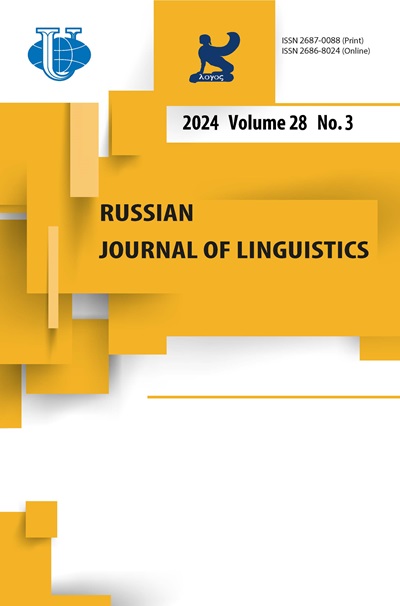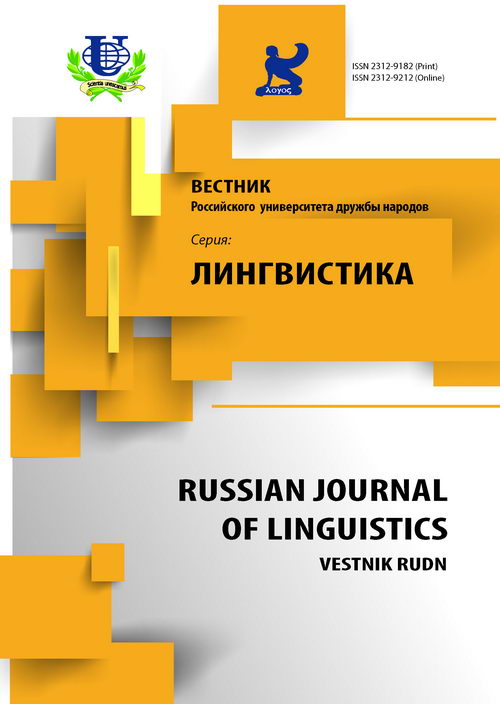Theory of Translation: referential situation and its temporal component as expression of the speaker's inner time consciousness
- Authors: Bobrova SE1
-
Affiliations:
- Peoples' Friendship University of Russia
- Issue: No 4 (2010)
- Pages: 5-12
- Section: Articles
- URL: https://journals.rudn.ru/linguistics/article/view/9687
Cite item
Full Text
Abstract
This work is devoted to achieving equivalency in translating from the English language. The focus is on the categories of tense, aspect and perfect of the English verbal forms used in speech as expressing the temporal component of the speaker's language consciousness. The concept of inner-time consciousness is introduced in the analysis from the phenomenological theory of intentionality as the founding concept for any kind of signitive intention. The linguistic signs are treated as means to express and reconstruct parts of the speaker's consciousness responsible for constituting temporal sense.
About the authors
S E Bobrova
Peoples' Friendship University of Russia
Email: kafedra_fl_rudn@mail.ru
Кафедра иностранных языковФилологический факультет; Российский университет дружбы народов; Peoples' Friendship University of Russia
References
- Бреус Е.В. Основы теории и практики перевода с русского языка на английский: Учеб. пос. - М.: Изд-во УРАО, 1998.
- Catford J. A Linguistic Theory of Translation. - L., 1965.
- Гуссерль Э. Идеи к чистой феноменологии и феноменологической философии / Пер. с нем. А.В. Михайлова. - М.: Дом интеллектуальной книги, 1999. - Т. 1. - С. 181.
- Иванова И.П., Чахоян Л.П., Беляева Т.М. История английского языка. - СПб.: Изд-во «Лань», 1999.
- Кобрина Н.А., Корнеева Е.А., Оссовская М.И., Гузеева К.А. Грамматика английского языка: Морфология. Синтаксис. - СПб.: Союз, 1999.

















